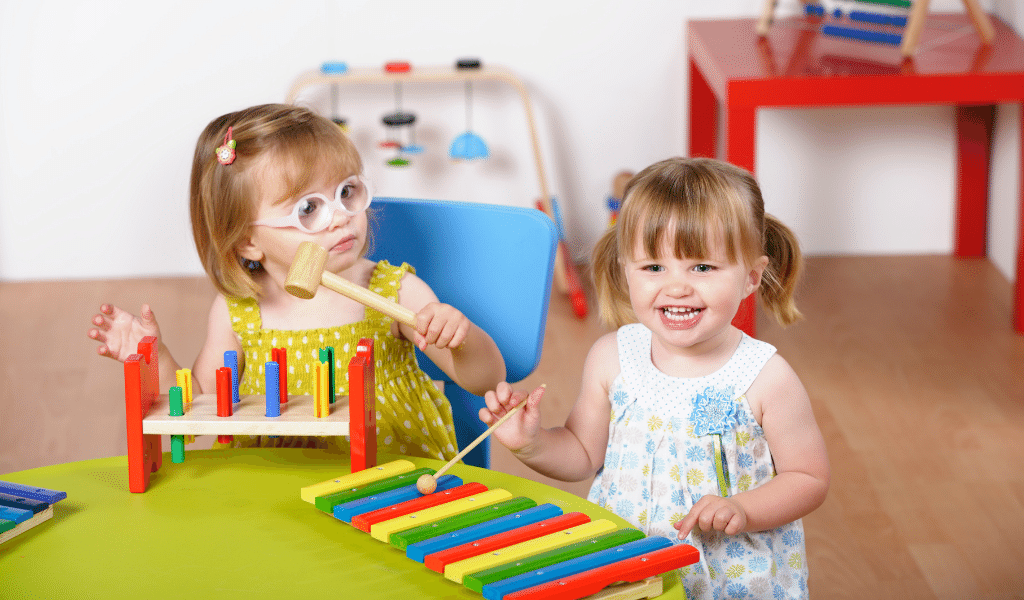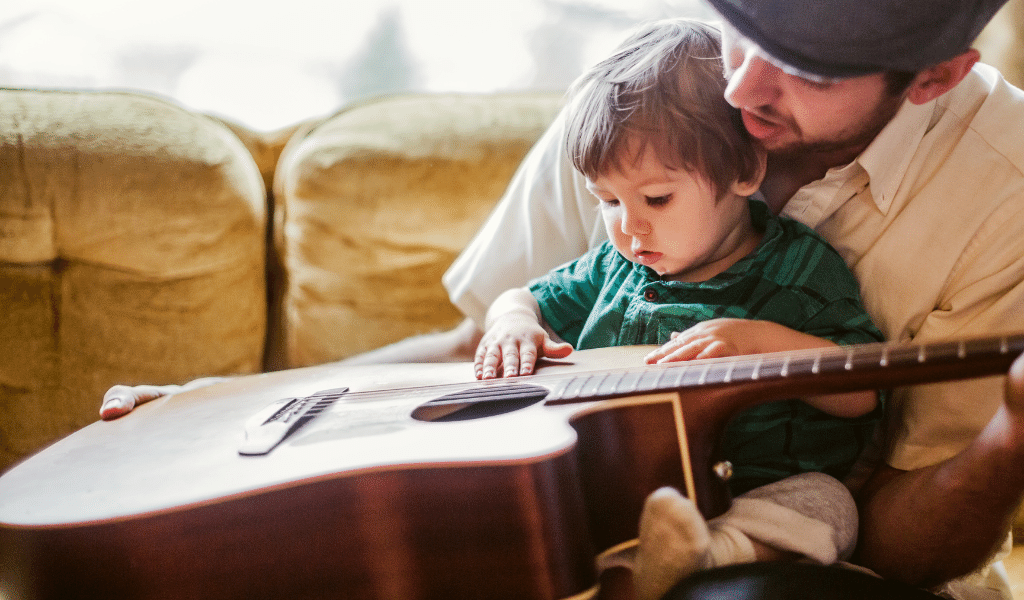In this blog, we asked Kinderly Ambassador, childminder and former teacher Vikkie Muray for her top tips for making phonics fun with children. Here are her joyous suggestions!
Learning to explore the world of sound should be playful! It should be fun and joyful! When we think about babies as they begin to babble in response to our games and funny faces – the expressions on their faces, that of pure joy at making a sound and evoking a response – this sings to the importance of play.
Play is the perfect time for you to model making and playing with sounds – for example, the police siren is loud! NEE NAW! The car’s engine goes VROOOOOM! In play, there is no right and wrong but just exploration and experimentation.
Create opportunities for children to explore making, hearing and distinguishing sounds in their play – you could even use or create recordings to add to your play invitations, or perhaps there could even be opportunities in your outdoor environment (traffic noise, bird song, etc) that you could utilise.

Sing! Sing long! Sing loud – with pride, gusto and unmatchable enthusiasm! Whether you are the next contestant on the voice or tone-deaf, sing daily!
I cannot emphasise the importance of this enough. Singing with children helps them to build so many of the important skills which make the foundations of phonological learning. It helps to build a sense of rhythm which can be enhanced with instruments and body percussion. A sense of rhyme that they will hear in so many of their favourite songs – try leaving bits out for them to shout out or having a silly puppet that always gets it wrong! A sense of pitch and tone will help them tune into individual sounds in words when they are ready to. Most importantly, a sense of enjoyment in being immersed in and exploring sound!

Make daily opportunities for children to stop and listen. Not to your voice or an audiobook but to a variety of different sources. Take a moment before a story or at key points in your day to sit or lie still and listen to what they hear around them. Encourage them to not just name the sounds they hear but describe them (e.g. quiet footsteps, shouting voices, twittering birds, noisy cars). This supports children in developing higher level listening skills – to really discern between the sounds that they hear and distinguish them from others. Encourage them to count how many different sounds they can hear and perhaps record these visually – you may be astounded how many they can hear, especially as you repeat the activity and they refine these skills.
Laughter… What does that have to do with it? Often as practitioners we treat phonics with an unwarranted seriousness. “Sounds – this is a serious business folks! Game faces on!” Although phonics is unquestionably important, it need not be serious! It does not have to occur on a carpet or at a table. It does not require worksheets or fancy resources. It does, however, require a sense of fun! So play with sounds, make the silliest ones you can find! Be Silly Billy Milly who feels rather Chilly and went running down a Hilly! Enjoy the children’s inevitable mispronunciations that come hand in hand with learning about sounds. Laugh with them when they mention hearing someone pass wind as part of your listening moment! Laughter is the purest and most beautiful sound of all!

Make playing with sounds part of your everyday routine. Whether it is: listening quietly whilst walking to and from places or parts of the setting and then talking what you heard; building a listening moment into a key part of your day; stopping the children to listen to the birds or a builder’s drill; or making up silly rhymes for people’s names – build opportunities into every part of your day for children to listen, play and experiment with sounds. By doing this you make the learning implicit and the children will then build these skills into their play and learning, unprompted, and recognise their importance.
In summary, phonics should be something implicitly taught that is part of children’s daily play and fun. No fancy schemes or worksheets are necessary, just your setting’s most valuable resource… YOU! So…PLAY! SING! LISTEN! and LAUGH… EVERYDAY and you will be well on your way to developing a solid, fantastic and fun foundation for children’s phonological learning and development.

Vikkie Murray has worked in education for over 15 years – as a qualified early years teacher, SENDCo, early years specialist teacher for a national daycare company and most recently as a registered childminder. She is currently undertaking the Hygge in the Early Years accreditation, is a Kinderly Ambassador and is a passionate advocate for child-led learning.